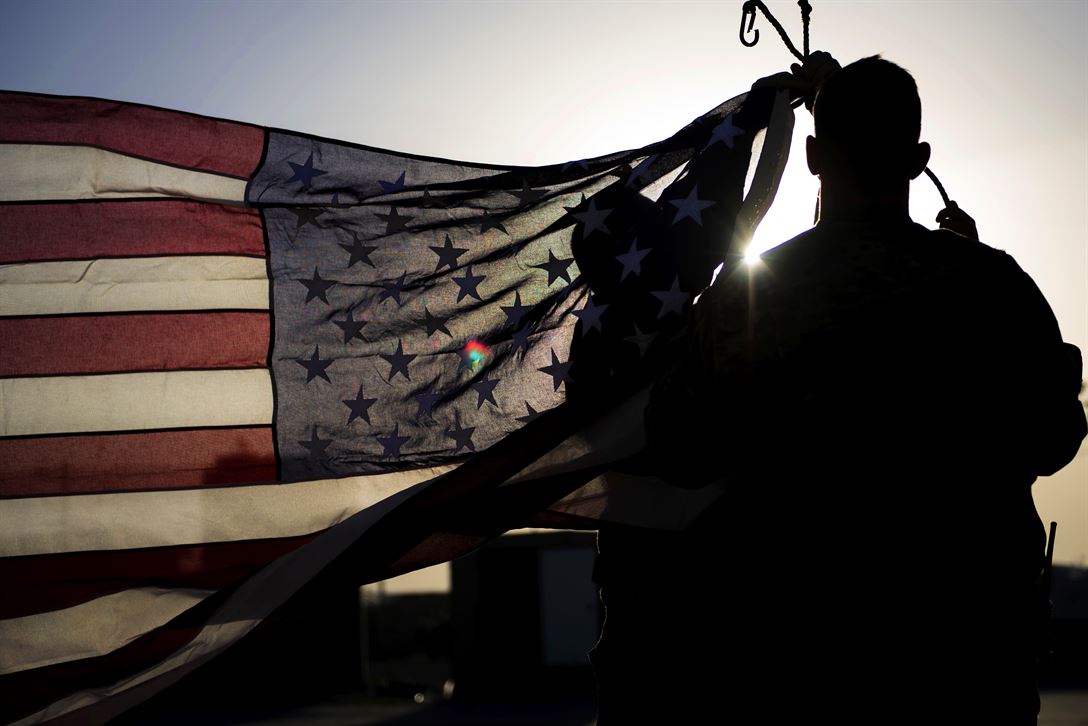
Nicole Johnson 2018. Used By Permission
“Life is short and truth works far and lives long: let us speak the truth.”― Arthur Schopenhauer
If there’s anything that I value, it’s the truth. The painful, brutal, unvarnished truth. When faced with a choice between a beautiful lie and ugly truth, many choose the beautiful lie. I prefer the ugly truth. Sometimes it hurts. Sometimes it’s an obstacle to getting done what we want done. It’s never wrong, by it’s very definition, but it’s not always pleasant. The truth I’m talking about today is that there are aspects of military service that make it less great than it seems to be. Many veterans have an idealized version of their time in service, but the truth is much more accurate than our nostalgic memories.
“Why air our dirty laundry,” some may say. “Us veterans have a hard enough time without people knowing what really happens in the military.” I hear this often when it comes to veteran mental health; one veteran reached out to me after reading the article about the Pandora’s Box of the Veteran Mind. “It is very difficult to attain meaningful and profitable employment for those of us fighting the ‘Broken Vet’ stigma,” the veteran said. “Telling the world we are a “Pandora’s Box” does not help.”
I understand. I really do. It’s hard to walk a line between talking about the very real challenges that veterans face, in order to help them overcome them, and to not perpetuate the impression that all veterans are crazy killers. And not all articles are about the negative aspects of mental health; but by only presenting puppies and rainbows is as inauthentic as only posting doom and gloom.
Here are some truths about miltiary service. They’re from my own experience, or what I’ve seen from veterans I work with as a therapist. They’re real. These things impact our mental health and wellness when we’re in the service, and carry them into our post-military lives. And life is too short not to address the truth.
Truth: Racial Discrimination Exists
I have heard about some of the most overt and horrendous racism that anyone can endure. A hispanic veteran being told that their job in the motor pool is to sweep and take out the trash “because that’s all you people are good for.” Another veteran who, while on deployment, talking about the dream of getting a ranch for him and his family, and is told…buy a supervisor…”you can’t do that, you only get forty acres and a mule.” This is not saying that all service members are racist, or even that most service members are racist; but this does exist in the military. It does happen, and it impacts our fellow service members.
Leaders, especially good ones, may not want to think this is happening. I know that it burns me up inside to hear it; even in a therapy session, admittedly, the leader in me reacts angrily to think that this is still happening in the military today. And when it does happen, and the service member reports it and nothing is done, then the negative impact of the discrimination is increased. Multiple studies, reviewed in this article in 2000 about the impact of racism on mental health and wellness, identified both physical and psychological distress as a result of racial discrimination.
Truth: Sexism, Sexual Harassment, and Assault Exist.
A colleague, Meaghan Mobbs, recently wrote about the stereotypes that female veterans are expected to adhere to the military, and she hit the nail on the head. I once had a veteran tell me that she just got used to the fact that, when she went to make copies, she would be brushed up against or “accidentally” touched. “Why didn’t you do something about it?” someone asked. She said, “If I did that every time it happened, I would be fighting all the time, every day. You reserve your indignation for the really blatant stuff.” And, of course, many have heard about the Marines United scandal, referenced in Meaghan’s article. A group of service members posted explicit photos of their female counterparts from all branches. This isn’t the 1950s where the boss has the secretary make coffee and sit on their lap after making coffee. This is happening right now, today.
As a leader in the military that worked with females my entire career, I certainly did what I could to foster an environment where this was unacceptable. Even when I had a soldier come to me to report systematic harassment and unwanted advances, and we reported it, nothing happened. An investigation was conducted, it was implied that we were trying to “make the unit look bad,” and ultimately both her and the perpetrator were moved to different units. Not surprisingly, research shows that these types of incidents lead to greater incidents of depression, anxiety, and stress in those who experience them.
Truth: Toxic Leadership Impacts Veteran Mental Health
As horrendous as the sexual harassment and racial discrimination are, toxic leadership in general exists and has an impact on mental health and wellness. In this article from 2004, these are the characteristics of a toxic leader: 1. An apparent lack of concern for the well- being of subordinates. 2. A personality or interpersonal technique that negatively affects organizational climate. 3. A conviction by subordinates that the leader is motivated primarily by self-interest. For those of you who have served: sound familiar? I know it does for me. And what happens when someone is faced with an adverse situation that they can’t avoid? Learned helplessness starts to set in. Involuntary Defeat Strategy. These, in turn, lead to depression, anxiety and stress.
These are the ugly truths. And there are certainly more of them out there. Again, are all veterans like this? Or even most? No, but chances are, if you are a female veteran or a racial minority, you have experienced something like this. And whenever I talk about toxic leadership, nearly every service member recognizes multiple leaders that negatively impacted them. These situations have long-lasting impacts on veteran mental health, and until they are addressed, will continue to do so.

The Head Space and Timing Blog is supported by the Colorado Veterans Health and Wellness Agency, a 501(c)3 Nonprofit in Colorado Springs, Colorado. The goal of the CVHWA is to provide military culturally competent mental health counseling to veterans and their spouses, regardless of characterization of discharge, time of service, or era of service. Our vision is to assist veterans to identify and remove barriers to their mental, physical, emotional, and behavioral wellness. For questions or inquiries, contact us!


